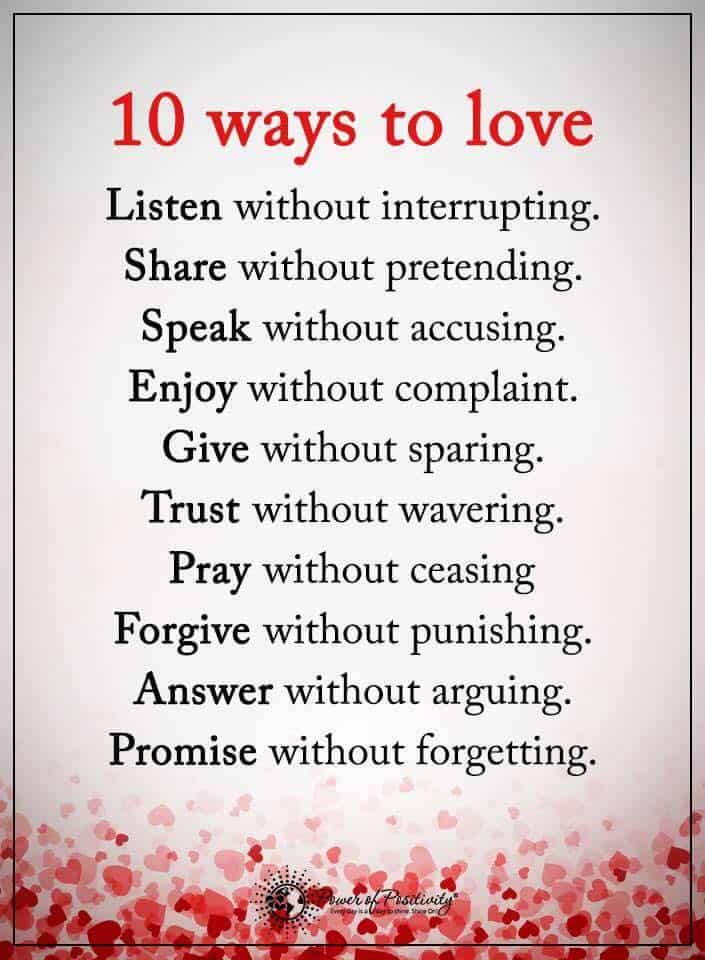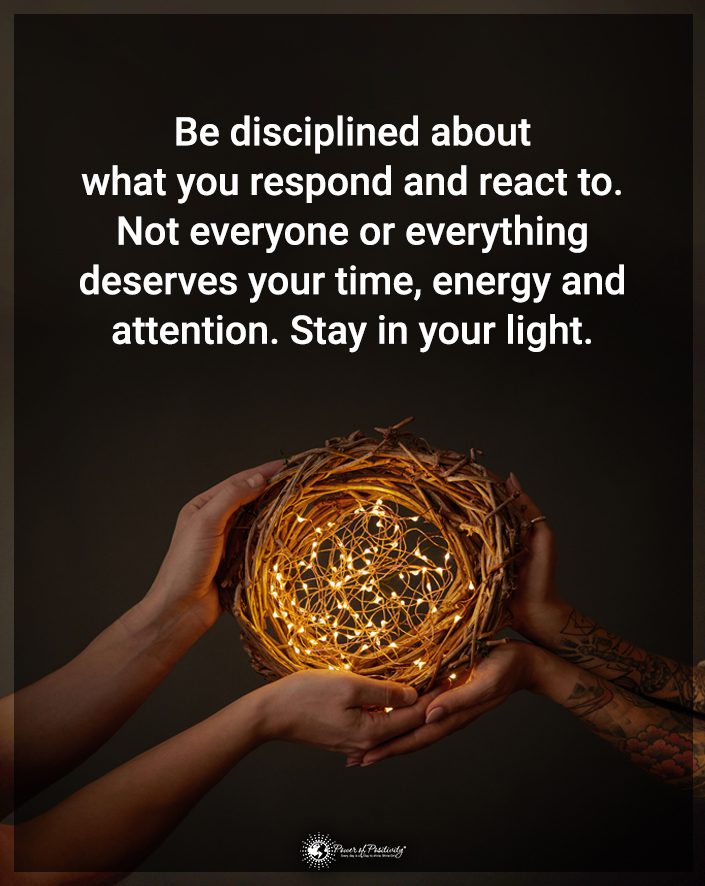You hold the key to positivity in your hands – it’s time to release it.
Positive thinking is not just an occasional mindset but a habitual way of processing the world around us. Positivity is a powerful tool that shapes our daily experiences, influences our mental health, and impacts our physical well-being.
However, many of us may believe we’re fostering a positive outlook when, in reality, our mental habits suggest we actually lack positivity.
Fifteen Signs You’re Not Actually Positive Thinking (But Think You Are)
Look out for these fifteen signs that positivity might not be as prevalent in your life as you think.
1 – Constant Worry Over Future Events
Worrying about the future is a natural part of being human. However, when this worry becomes a constant state of stress about what tomorrow might hold, it can be a clear sign that positive thinking is not your default mental setting. This ongoing concern can manifest as anxiety over upcoming responsibilities, fear of failure, or dread of hypothetical scenarios that may never come to pass.
Instead of envisioning a future filled with possibilities and opportunities, a mind overshadowed by pessimism is more likely to anticipate dissatisfaction, difficulties, and disappointments. This mindset robs you of present happiness and can also lead to paralyzing inaction, preventing you from taking the steps needed to create a more fulfilling future.
Cultivating a habit of positive thinking encourages a balanced view of what’s ahead, acknowledging potential challenges and recognizing that many things we worry about never actually happen.
2 – Dwelling on Past Mistakes May Reveal a Lack of Positivity
Reflecting on the past can be beneficial, but there’s a significant difference between learning from past experiences and being trapped by them. If you find yourself replaying mistakes repeatedly, beating yourself up for what you could have done differently, or carrying the weight of old regrets, it’s a sign that positive thinking has taken a back seat.
Dwelling on past mistakes may lead to a distorted self-image and a belief that these errors define you. Conversely, positive thinking is about acknowledging missteps, extracting valuable lessons, and moving on with a clearer understanding and renewed confidence.
It’s about allowing yourself the grace to be human and the courage to forgive yourself by shifting your focus from what went wrong to what can open you up to personal growth and prevent the past from having a hold on your present and future.
3 – Feeling Stuck in Life May Stem From a Lack of Positive Thinking
Feeling stuck or trapped in your current spot can be a disheartening experience. This sensation of stagnation often stems from a mindset that struggles to see beyond the current moment or situation. When positive thinking is not in play, challenges can seem impossible. The path forward can appear bleak or nonexistent.
However, embracing a positive outlook can be transformative, as it allows you to view life as a series of phases and opportunities, each with the potential to lead to something better. It encourages resilience and adaptability—critical traits for navigating life’s ups and downs.
If you’re feeling stuck, it’s worth examining your thoughts to see if negative assumptions about change and growth dominate them. By adopting a more positive perspective, you can identify actionable steps that can lead to change and moving forward. However, small steps can break the cycle of stagnation.
4 – Difficulty in Accepting Compliments
Receiving compliments is more challenging for some than others. If you tend to deflect praise or feel a sense of discomfort when recognized, it could be a sign that you’re struggling with self-acceptance and positive thinking. This difficulty often arises from believing you are not worthy of the praise you’re receiving. It may also come from what others eventually see as ‘the real you’ and retract their positive words.
This mindset can be deeply ingrained and often stems from a history of self-criticism or external criticism. Thus, it leads to a diminished sense of self-worth. Positive thinking is about being optimistic regarding external circumstances and recognizing and valuing your qualities and achievements.
It involves building a kinder internal dialogue where you can acknowledge your strengths and accept that you deserve praise just as much as anyone else. When you believe in your worth, accepting compliments becomes a natural response rather than a source of anxiety.
5 – Envy of Others’ Success Could Mean Less Positivity
Envy is a natural human emotion, but when it becomes a common reaction to the achievements of others, it may indicate a scarcity mindset, where you see success as a limited resource. If you often feel bitter or resentful when someone else succeeds, it might suggest that your thoughts are more harmful than you realize.
Positive thinking is rooted in the belief that there is enough success to go around and that another person’s achievements do not diminish your potential. It encourages a sense of community and shared joy rather than competition.
By shifting from envy to inspiration, you can transform feelings of jealousy into motivation for your goals. Celebrating others’ successes can open your heart to a more abundant mindset. You also create a more supportive environment for everyone to thrive – including yourself.
6 – Frequent Irritability Could Come From a Lack of Positive Thinking
Everyone gets irritable sometimes, but if you find that irritability is your frequent companion, it’s worth taking a closer look at your thoughts. Frequent irritability, especially over the small stuff, can indicate that your mind is leaning towards a negative bias.
That can be a symptom of underlying stress, fatigue, or unaddressed emotions, which can all skew your perspective. Positive thinking doesn’t mean you never feel frustrated. But it does involve handling irritations with a sense of proportion and calm. It’s about recognizing that irritability often says more about our state of mind than the situation.
By addressing the root causes and practicing mindfulness and stress-reduction techniques, you can reduce the frequency of irritability and foster a more positive, patient approach to life’s inevitable hiccups.
7 – Feeling Overwhelmed by Minor Setbacks
Setbacks are a part of life. But they don’t have to derail us. If small obstacles send you into a spiral of stress or despair, it’s a sign that positive thinking may not guide your reactions. This sense of being overwhelmed by minor issues can make mountains out of molehills and turn manageable situations into perceived crises.
Positive thinking helps to put setbacks into perspective, viewing them as temporary challenges that can be overcome rather than as permanent roadblocks. It’s about resilience—bouncing back from disappointments and maintaining a steady course towards your goals.
Cultivating a positive mindset means you can learn to navigate setbacks with determination and a belief in your ability to cope, adapt, and move forward.
8 – Persistent Self-Doubt May Reveal Less Positivity
Self-doubt is like an inner critic that questions your capabilities and undermines your confidence. If this voice of doubt is a constant in your life, it can be a significant barrier to positive thinking. This persistent skepticism about your abilities can hold you back from taking risks, trying new things, and pursuing your dreams.
By contrast, positive thinking encourages a supportive and affirming inner dialogue. It doesn’t mean you overestimate your abilities or ignore your limitations. It should mean that you believe in your ability to learn, grow, and succeed. Positivity means replacing the voice of self-doubt with self-encouragement, recognizing that you are capable and that setbacks are growth opportunities.
Building your self-confidence through positive thinking can empower you to set ambitious goals. You’ll also work towards them with conviction.

9 – Lack of Energy May Come From Less Positive Thinking Than You Think
It’s not uncommon to have days when you feel less energetic, but a persistent lack of energy can signify a negative mindset. When your thoughts are predominantly pessimistic, they can drain your mental and physical reserves. As a result, you feel exhausted before you even start your day. Positive thinking can act as a catalyst for energy; it’s invigorating to approach life with enthusiasm and hope.
That doesn’t mean that positive thinkers never feel tired. Rather, they have a mindset that helps them manage their energy better. They prioritize tasks, take breaks when needed, and engage in self-care, all contributing to sustained energy.
If you’re constantly feeling drained, it might be time to examine your thoughts and attitudes to see if negativity is sapping your vitality. When you have more optimistic and constructive thoughts, you may find a natural increase in your energy levels.
10 – Difficulty in Maintaining Relationships
Relationships require effort and resilience, and a positive mindset can be critical in maintaining healthy connections with others. If you’re finding it difficult to keep relationships afloat, it could be a sign that negative thinking is influencing your interactions.
Perhaps you’re quick to assume the worst in others, hold grudges, or struggle to communicate effectively during conflicts—all of which can strain relationships. Positive thinking fosters empathy, effective communication, and giving and receiving love and support. It encourages you to see the best in people, work through conflicts constructively, and appreciate the value of the relationships in your life.
If maintaining relationships is challenging, consider trying for more positivity. It could help you build stronger, more resilient bonds.
11 – Pessimism About the World
A negative view of the world can significantly impact your overall outlook. Suppose you focus on the negative news, expect the worst from societal changes, or feel like the world is on a downward spiral. In that case, it strongly indicates that positive thinking is not your prevailing mindset. While being realistic and not naive about the world’s problems is essential, a positive thinker looks for the good amidst the bad.
They acknowledge issues and recognize humanity’s capacity for kindness, innovation, and improvement. They choose to contribute positively rather than simply lamenting the negative. Suppose your view of the world is predominantly pessimistic.
In that case, actively seeking out positive stories and initiatives might be helpful. These can provide a more balanced perspective and foster a sense of hope and optimism.
12 – Rarely Feeling Grateful May Come From No Positive Thinking
Gratitude is a crucial component of positive thinking and overall well-being. If you rarely feel grateful, it might indicate that you’re overlooking the good in your life and focusing too much on what you lack or what could be better.
This mindset can lead to a perpetual state of dissatisfaction and wanting, making it hard to appreciate the present moment and the many blessings you do have. Positive thinking encourages regular reflection on the positives in life, no matter how small. It’s about recognizing the value of experiences, relationships, and personal growth.
When cultivating gratitude, you can shift your focus from scarcity to abundance. You dramatically improve your outlook on life and increase your overall happiness and positivity. Gratitude practices include keeping a gratitude journal or taking a moment to reflect on your gratitude each day. These can be powerful tools in fostering a more positive mindset.
13 – Constant Comparison with Others
Constantly comparing yourself to others can be a subtle thief of joy and a sign that positive thinking is not in the driver’s seat. When you measure your life against the lives of others, you evaluate your worst against their best, which can lead to feelings of inadequacy and discontent.
Positive thinking encourages you to focus on your journey and celebrate your accomplishments. It’s about understanding that everyone’s life has different timings and milestones and that comparison only distracts you from your goals and successes.
If you often find yourself in the comparison trap, it might be time to recenter your thoughts on your personal growth. You should also think about the things that make you, as an individual, fulfilled and happy.
14 – Neglecting Self-Care May Come From Not Practicing Positive Thinking
Self-care is fundamental to maintaining your mental and physical health. Conversely, neglecting positivity can signify a negative mindset. Not prioritizing your well-being may indicate that you don’t value yourself enough to care for your needs properly.
Positive thinking is closely tied to self-care because it recognizes that you are worthy of the time and effort to maintain your health and happiness. If you’re not engaging in regular self-care, consider how shifting to a more positive mindset could help you realize that you deserve the same kindness and care you would extend to others.
Making self-care a priority can reinforce a positive outlook and enhance your overall quality of life.
15 – Feeling Hopeless
Hopelessness is perhaps the most profound indicator that positive thinking is absent. When you feel hopeless, it’s as though you’re in a tunnel with no light at the end. This feeling can be all-consuming and profoundly affect your ability to cope with daily life. Positive thinking is the antithesis of hopelessness. Instead, it is the belief that there is a way forward, even in the darkest times.
The spark encourages you to keep going when things get tough. If hopelessness is a frequent feeling for you, seeking support is crucial. Talk through your emotions with trusted friends or family members, or a therapist. Positive thinking isn’t about denying the reality of difficult situations but about finding the strength to believe in the possibility of a better future.
It’s about holding onto hope for more positivity, even when it feels out of reach, and taking small steps towards a brighter tomorrow.

Final Thoughts on Increasing Positive Thinking for a Happier Life
Positive thinking is a skill that comes naturally with practice and patience. By acknowledging areas where negativity prevails, you can introduce more optimistic thoughts and attitudes into your daily life. Remember, the journey to increase your positivity is gradual, and self-compassion is a critical part of the process.






















